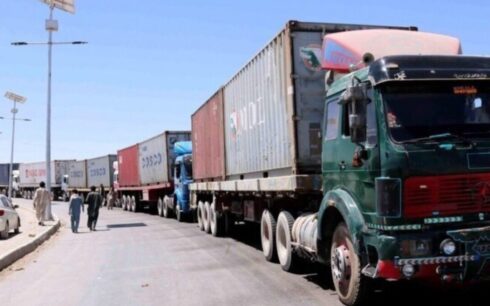The Torkham border crossing between Afghanistan and Pakistan remained closed for a fourth day as talks between the Taliban and Pakistani customs authorities ended without an agreement.
The deadlock centers on passport requirements and document processing capacity. Pakistani media report that the Taliban’s lack of facilities for issuing documents has led to requests for Islamabad’s permission to allow patients’ humanitarian entry into Pakistan.
Despite the impasse over passport demands and document issuance capacity, neither side has shown willingness to compromise. About 90 percent of Afghan drivers and patients lack passports, and there are calls for Islamabad to allow humanitarian entry for patients, especially those with critical conditions like cancer.
Drivers stranded at the closed crossing have reported harsh conditions, with limited access to food and water. Faizullah, a driver, expressed frustration over the lack of passports and visas, leading to trade disruptions and financial losses.
Nadir Khan, another driver, highlighted the lack of basic necessities and difficulties faced due to expired passports and visa rejections.
Mirwais Haji Zada, deputy head of the Afghanistan Chamber of Agriculture and Livestock, accused Pakistan of frequently closing the crossings during peak trade seasons, causing substantial financial damage to Afghan traders. “Pakistan closes the crossings several times a year during critical trade periods, leading to spoilage of perishable goods and significant losses,” Zada said.
The closure has also driven up fruit and vegetable prices in Kabul markets. Shopkeepers note that the perishable nature of these imports exacerbates losses.
Murtaza, a shopkeeper, emphasized the urgency of transporting these goods to prevent spoilage and financial losses.
The Afghanistan Chamber of Commerce and Investment reports that about 3,000 containers carrying Afghan goods are stranded on both sides of the Torkham crossing. Afghanistan’s reliance on trade through Pakistan, particularly via the Karachi and Gwadar ports, underscores the importance of this crossing for importing transit goods.





